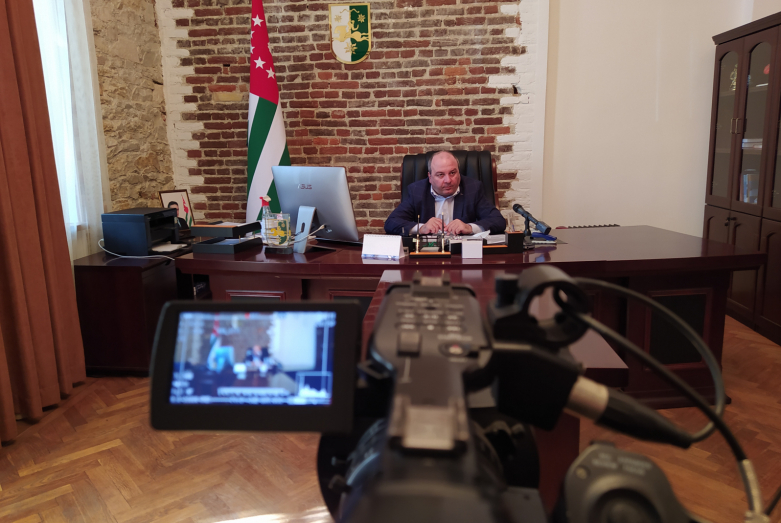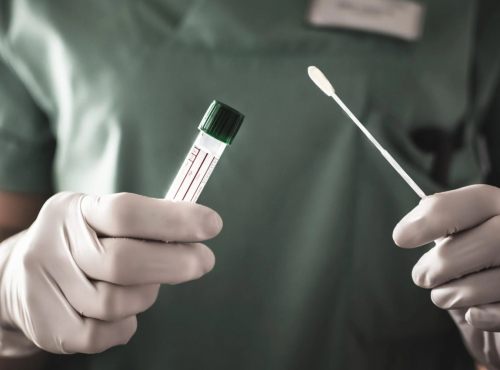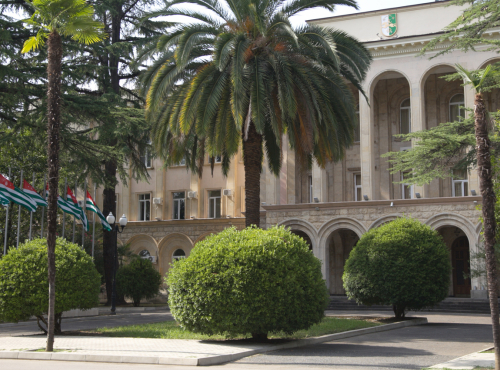Tests to determine the antibodies for the COVID-19 are started in Abkhazia
Abkhazia acquired rapid tests for the diagnosis of enzyme-linked immunosorbent assay (a laboratory diagnostic method that allows the detection of specific antibodies and antigens for a variety of pathologies - ed.) per 1000 studies in the fight against the spread of coronavirus infection. The tests will be used for their intended purpose “where necessary according to relevant indications,” said Tamaz Tsakhnakia, head of the operational headquarters for protecting the population from coronavirus infection.
As the Minister noted, PCR diagnostics are carried out within the framework of the republican bacteriological laboratory, which gives “absolutely reliable research results.”
Tamaz Tsakhnakia also spoke about the current situation with the spread of coronavirus infection in Abkhazia. To date, it has somewhat worsened: 4 patients from the number of Abkhazian cadets who arrived at various times from military universities in Russia were re-identified recently.
“They are all hospitalized in the Gudauta Central District Hospital, which, as you know, is a covid (hospital equipped to treat patients with COVID-19 - ed.) clinic today. To date, 20 patients are in this hospital. These are mainly our cadets. Their condition is satisfactory, they undergo the whole range of necessary medical measures,” said Tamaz Tsakhnakia.
He summarized the figures for patients in Abkhazia for the entire period of the development of a pandemic in the world. In total, 24 cases of the disease were registered in the Republic, of which one patient born in 1925, who was treated at the Gudauta hospital, died, three recovered and are at home.
The Minister noted that the Gudauta Central District Hospital has everything necessary for treating patients. “This is a full range of medicines - antiviral drugs, antibacterial and other drugs that are used in the treatment of this category of patients. Three meals a day are provided for patients,” he said.
Tsakhnakia also spoke about the observance organized at the Sukhum “Aitar” hotel to isolate people who come from regions that are unsuccessful in terms of a pandemic. Today, there are 187 people observed.
“All of them will be examined on time. So, today we have taken samples of biomaterials that are sent to the baclaboratory. In case of negative results, everyone will be sent home,” said the head of the Operational HQ.
“Aitar” has created all the necessary conditions for people to stay - medical support and three meals a day. On the eve of the observation, 52 people were discharged who had negative results for coronavirus and had no clinical signs of the disease.
Responding to a question from journalists about the adequacy of measures taken by the authorities in the context of 24 confirmed cases and one death, as well as the constant return of Abkhaz citizens from abroad, Tamaz Tsakhakia noted:
“There are several concessions in the last order of the President. The main points all remained the same. The concessions only affected the working conditions of the market; grocery stores are functioning. Catering within the framework of this order should be open, but with certain conditions. Thorough checks of these establishments are now being carried out. Sanitary rules and norms must be observed, they are clearly set out: social distance, a small number of people, personnel wearing masks and gloves, decontamination of surfaces and so on. If this is not the case, any object will be closed on the same day. The same goes for the working conditions of hairdressers. There is no mass congestion of people, and these objects cannot be considered epidemiologically significant.”
To date, 24 patients with coronavirus infection have been identified in Abkhazia. Five are residents of Sukhum and Gudauta. Abkhaz epidemiologists establish a circle of patients who were in contact with COVID-19 infected. The remaining cases are students of Russian military universities, who have been under observation since arrival and have not contacted anyone.



to login or register.